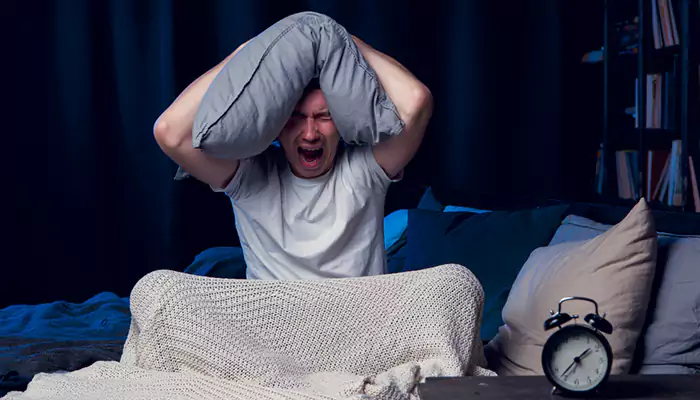
In the hustle and bustle of modern life, finding tranquillity at night can be a challenge. Our minds, often saturated with the day's activities and worries for the future, struggle to find the off switch as we seek the solace of sleep.
The importance of sleep for our physical and emotional health cannot be overstated. It's during these precious hours of rest that our bodies heal, our brains consolidate memories, and our emotions find balance. Yet, for many, the quest for quality sleep remains elusive, marred by restless thoughts and anxiety. Let’s explore effective strategies to calm your mind for better sleep.
The relationship between sleep and our mental state is bi-directional. Just as stress and anxiety can impair our ability to fall asleep, poor sleep can lead to increased stress, creating a vicious cycle. Neurologically, sleep involves multiple brain processes, and disruptions in these processes can exacerbate mental chatter.
A pre-sleep routine is akin to a gentle nudge to your brain, signalling that it's time to wind down. This routine can include activities such as taking a warm bath, reading a book, or practicing relaxation exercises. The key is consistency and ensuring that these activities are calming rather than stimulating.

Mindfulness and meditation have been heralded for their ability to reduce stress and improve sleep. These practices involve focusing on the present moment and observing thoughts without judgment. By incorporating mindfulness or meditation into your nightly routine, you can train your brain to detach from the day's worries and embrace the present moment, making it easier to drift off to sleep.
Regular physical activity can significantly improve the quality of your sleep. Exercise not only tires the body physically, making it easier to fall asleep, but it also reduces stress and anxiety, which can interfere with sleep. However, timing is important; exercising close to bedtime can increase adrenaline levels, making it harder to fall asleep.
What we eat and drink can profoundly affect our sleep. Caffeine, for instance, can disrupt the sleep cycle, leading to fragmented sleep. On the other hand, foods rich in magnesium and potassium can promote muscle relaxation and better sleep. Establishing good sleep hygiene – such as maintaining a cool, dark, and quiet sleeping environment and limiting exposure to screens before bedtime – can also create the optimal conditions for sleep.
The screen’s blue light can interfere with the production of melatonin, the hormone that regulates sleep-wake cycles. Limiting screen time at least an hour before bedtime can help mitigate this effect. Consider replacing late-night TV or smartphone use with more sleep-conducive activities, such as reading a physical book or listening to calming music.
Creating an environment conducive to sleep can significantly impact your ability to fall asleep and stay asleep. This includes factors like the comfort of your mattress and pillows, the temperature of your room, and the level of noise and light.
By adopting these strategies, you can pave the way for a night of restful sleep, ultimately enhancing your overall health and well-being. Remember, the path to better sleep is personal and may require experimenting with different techniques to find what works best for you. With commitment and patience, however, achieving a peaceful mind and restorative sleep is within reach.